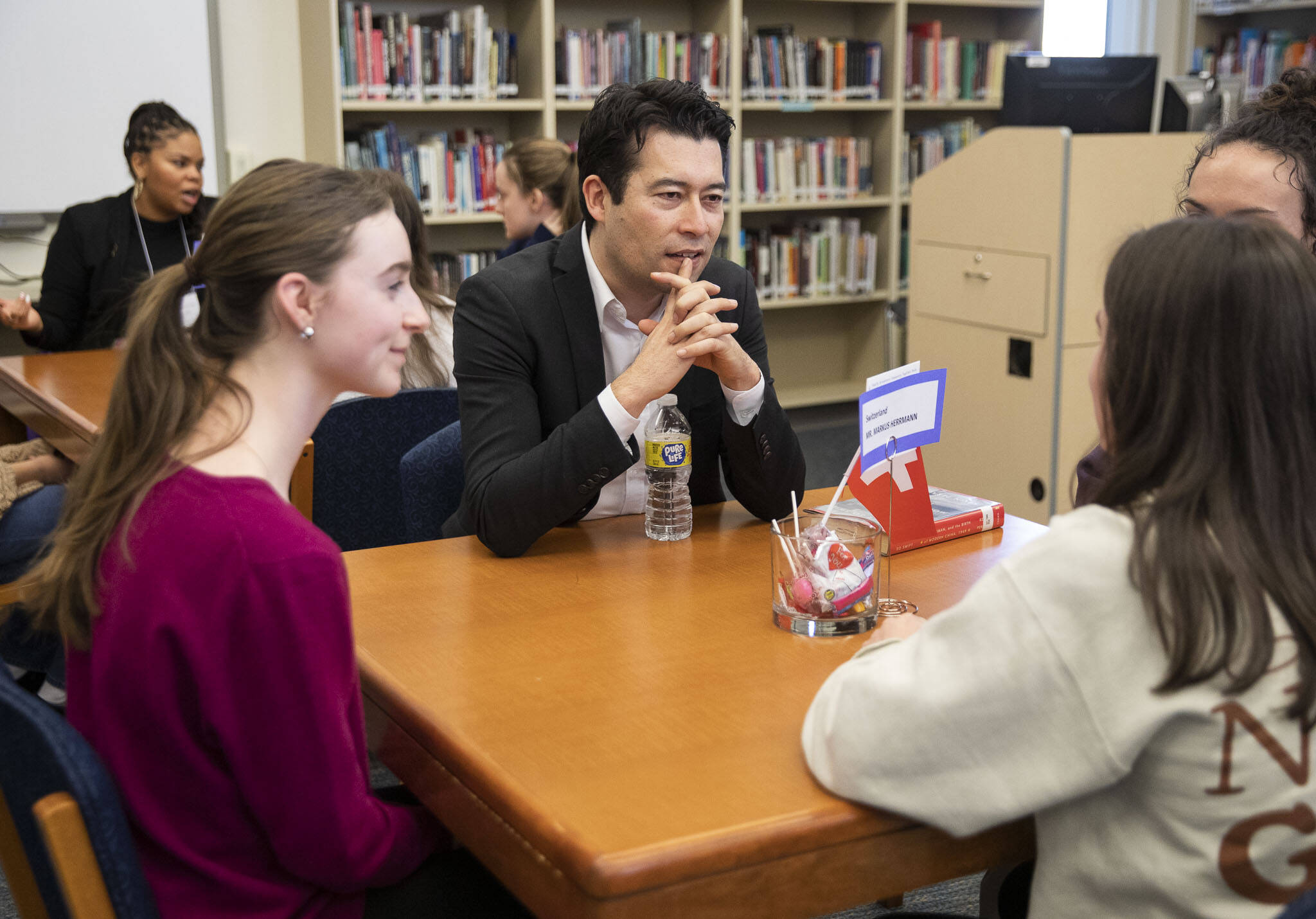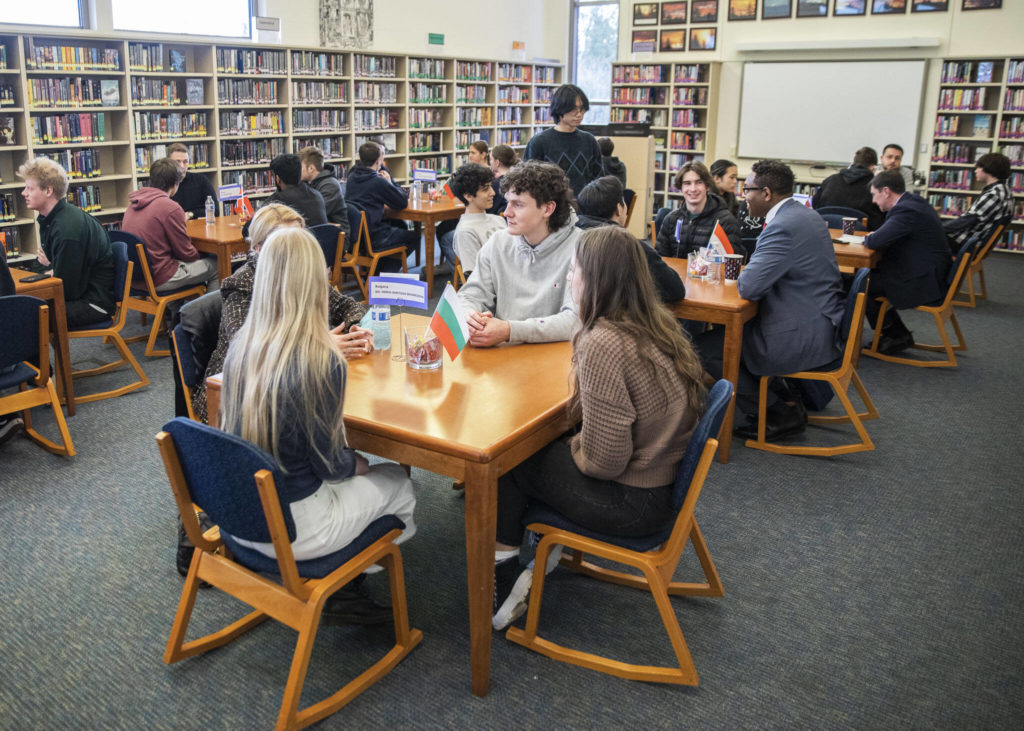SNOHOMISH — Slovakia. Slovenia. Spain. All in Snohomish.
Delegates from 18 different European countries traveled to Glacier Peak High School on Thursday to chat with the Advanced Placement Comparative Government classes about international social, political and economic issues.
The delegates, ages 25 to 35, work in a variety of roles, such as National Assembly member of parliament, senior adviser in the Ministry of Foreign Affairs, digital journalist, International Studies assistant professor, vice mayor, director and CEO. They are participants in the U.S. Department of State International Visitor Leadership Program and are currently working on a project titled “Current U.S. Social, Political, and Economic Issues for Young European Leaders.”
Their pressed suits stood out a bit among the high school library’s superhero-themed book displays and cardboard cutouts of Captain America — until, that is, they all huddled together at desks in small groups to discuss big ideas, abuzz with lilting accents and foreign languages.
“It almost made me cry,” said Dave Ensberg-Kleijkers, the director and CEO of National Youth Fund in the Netherlands. “To see all these kids so engaged, so motivated to make the world a better place.”
Ensberg-Kleijkers’ group discussed the students’ passions, such as volunteering to help with the homeless crisis in Seattle. The Dutch CEO is originally from Suriname, a country in South America, and he and some of the first-generation American students discussed their desires to use what they’ve learned in the United States to give back to their mother countries.
High school seniors had one-on-one time to ask officials like Adrian Stano, a director in the Slovakian prime minster’s administration, about the biggest issues facing their countries today.
“Energy is our biggest issue,” Stano said, explaining how the war in Ukraine has affected Europe’s energy costs. High construction prices and inflation, he explained, are ripple effects of the energy crisis.
In turn, he asked the students about what high school in the United States is like, and they indulged him on the daily expectations. All around the room, the exchange of ideas and experiences continued.
The president of the city board in Belgrade, Serbia, spoke. A Helsinki City Council member answered questions. A member of parliament in the Bulgarian National Assembly listened.
Klemen Balanč, a Bloomberg journalist from Slovenia, asked students about their favorite and least favorite aspects of American culture. A trio of senior boys discussed “The American Dream” and its feasibility. They puzzled over racism and how it shows up systemically in academic institutions. Balanč regaled them with tales of Slovenia, recommending they all visit Lake Bled at some point in their lives.
When AP teacher Ryan Hauck announced the end of discussion had neared, the senior adviser for Spain’s Ministry of Foreign Affairs, Adriana Viz Fernandez, vehemently requested more time to talk with students. She said Thursday’s conversation was her favorite part of their American trip thus far.
On Jan. 21, the delegates arrived in Washington D.C. and were briefed at the Pentagon. Then they split up for projects in Cleveland and Cincinnati respectively before reconvening in Seattle. Their next stop is San Antonio to discuss immigration before leaving from Boston on Feb. 11.
They aim to “examine interrelated U.S. foreign and domestic policy topics,” including homeland security, economic development, immigration, health services, environmental sustainability and energy. They also hope to “explore the role of diversity, the individual and religion in the United States.”
It’s rare, Hauck said, to have such a plethora of different countries and experiences to learn from in one room. He said the unique chance offered a “cross-cultural” discussion with young professionals from around the world.
Kayla J. Dunn: 425-339-3449; kayla.dunn@heraldnet.com; Twitter: @KaylaJ_Dunn.
Talk to us
> Give us your news tips.
> Send us a letter to the editor.
> More Herald contact information.


























